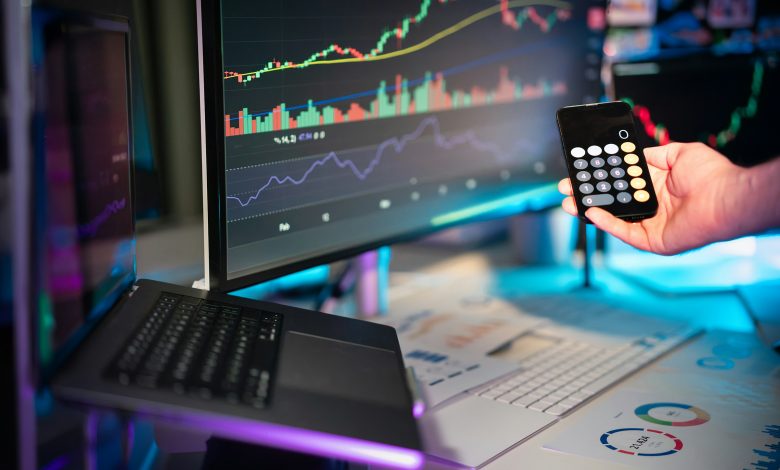How Futures Prop Firms Differ From Forex or Stock Firms

You’re going into the world of prop trading and trying to figure out which path to take like futures, forex, or stocks. It can get a bit overwhelming because each market has its own rules, rhythms, and realities. And when it comes to prop firms then the way they operate across these markets can look pretty different. So let’s discuss in detail how futures prop firms differ from forex and stock firms.
What Is a Prop Firm?
A prop firm short for proprietary trading firm is basically a company that lets you trade with their money instead of risking your own. If you’ve got the skills and pass their evaluation then they’ll give you capital to trade with and you’ll keep a cut of the profits.
It’s kind of like a job interview that never ends. Perform well and you stick around. Mess up too often and you’re out. That’s the game.
What Makes Futures Prop Firms Unique?
The Products Are Wildly Different
The first big difference is what you’re actually trading.
- Futures: These are standardized contracts to buy or sell a commodity or financial instrument at a later date. It includes oil, gold futures, the S&P 500 index, or even corn. You’re not buying the actual asset but you’re trading the contract.
- Forex: You’re trading currencies like EUR/USD, GBP/JPY, and so on. It’s all about betting on one currency going up or down against another.
- Stocks: You’re buying shares of companies. It’s like owning a tiny slice of Apple or Tesla.
Each asset behaves differently. Futures are often more volatile and come with leverage baked in. Forex is known for 24-hour access and fast moves. Stocks can be slower unless you’re trading small caps or meme stocks.
Funding Structures and Models Vary
Futures prop firms typically operate on more of a desk-based model. That means traders often work in-house or through remote platforms that simulate a real trading desk. There’s sometimes a salary involved, especially in more traditional futures firms, plus performance bonuses.
Compare that to most forex prop firms where the evaluation process is king. You sign up, pass their challenge, and if you hit the targets and avoid blowing up the account then you get funded.
Stock prop firms often fall somewhere in between. Some require traders to put up their own capital. Others provide firm capital after proving yourself. It’s a bit of a mixed bag.
Futures firms, on the other hand, are more likely to front the capital upfront but they also tend to be more selective.
Risk Management? Whole Different Ball Game
The risks are great in the future. You can easily lose a lot of money. Because of this, futures trading prop firms often have more strict and active risk management.
If things go wrong, you may have a risk manager on your tail or at the very least a system that stops you from making transactions. Strict adherence to position size and margin criteria is maintained.
Risk management in FX prop firms is frequently automated. You’re done if you violate a rule. Both black and white are used. Typically, the trading periods are shorter and the drawdown limitations are more strict.
Stock prop firms? If you have a stake in the outcome, they are usually more forgiving of the rules. However, you should anticipate having daily stops and well-defined risk levels if you’re trading with firm capital.
Futures companies don’t play around. Your winnings might be lost in a one poor deal. They usually keep a careful eye on things because of this.
Trading Hours & Lifestyle: It’s a Vibe Shift
- Futures: Most futures markets trade nearly 24/5 but the real action happens during specific sessions like the U.S. equity futures open around 9:30 AM EST. If you’re trading something like the E-mini S&P 500, expect a fast-paced morning. It’s intense but doesn’t have to take over your whole day.
- Forex: is open five days a week, twenty-four hours a day. You could see the London Open late in the afternoon if you’re in Asia. You can consider staying up for the Tokyo session if you’re in the United States. Although it’s adaptable, if you’re not careful, it might quickly ruin your sleep routine.
- Stocks: 9:30 AM to 4:00 PM EST is the regular business hours. Although there are extended hours, the main session has the most volume. Stock trading may be more your thing if you want structure and have free evenings.
Tech and Platforms Are Totally Different
Platforms like Sierra Chart, NinjaTrader, and Rithmic-based methods are frequently used by futures traders. These platforms are designed for extensive order book analysis and speed.
They also enable quick execution, algo integration, and custom-built tactics.
The majority of forex prop firms utilize MT4 or MT5, which are reliable, easy to use, and popular but less adaptable for advanced futures-style trading.
Platforms designed for equities scalping and level 2 data such as Sterling Trader, Lightspeed, or DAS Trader Pro, are frequently used by stock prop firms.
Platforms for futures can be costly. It can be necessary to license the platform, pay exchange fees, and lease a data stream. That is covered by several prop companies. Others don’t. Therefore, be mindful of the hidden expenses.









